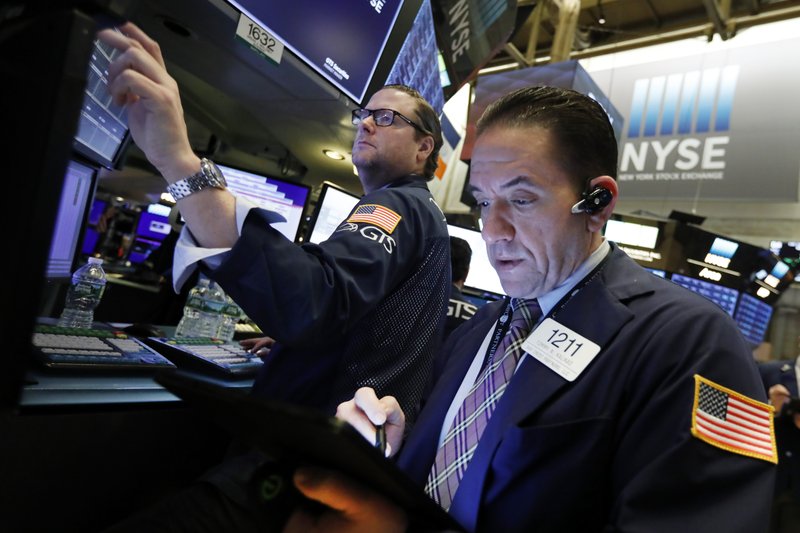Industrial companies led a broad slide in stocks on Tuesday, ending the benchmark S&P 500's eight-day winning streak.
The S&P 500 index fell 17.57 points, or 0.6 percent, to 2,878.20. The Dow Jones industrial average dropped 190.44 points, or 0.7 percent, to 26,150.58. The Nasdaq composite slid 44.61 points, or 0.6 percent, to 7,909.28. The Russell 2000 index of small-cap stocks gave up 19.32 points, or 1.2 percent, to 1,559.68.
The sell-off came as traders weighed growing trade tensions between the U.S. and the European Union, and a report forecasting dimmer global economic growth this year.
Banks and technology companies also lost ground. Only utilities and communications service providers, a broad category that includes entertainment, telecommunications and Internet companies, notched gains.
Smaller company stocks fell more than the rest of the market. Bond prices rose, sending yields lower, as investors moved money into safer holdings. The price of gold rose.
Tuesday's wave of selling marks a reversal for the market, which has been moving decidedly upward in recent weeks. The market is primed for more market-moving news this week, as the latest round of corporate earnings reports kicks off today with Delta Air Lines. Several banks, including JPMorgan Chase, will release their first-quarter results on Friday. Analysts expect earnings for the S&P 500 to decline for the first time in almost three years.
"We're in the later stages of the economic cycle, so earnings are definitely needed to keep the momentum going," said Jennifer Green, global investment specialist at J.P. Morgan Private Bank. "We've seen a very nice run, so far year-to-date, so the next stage is listening to how the earnings come in and the outlook and the guidance that these companies give us."
European indexes also finished broadly lower, giving up early gains, after the U.S. threatened to impose $11.2 billion in tariffs on European products, including cheese, wine and helicopters.
The threat from President Donald Trump could make investors even more concerned about trade disputes hurting an already slowing global economy at a time when the U.S. is trying to resolve a trade conflict with China.
That spat has already made a list of goods more expensive for consumers and is weighing on an already slowing Chinese economy. Negotiators met again last week, and both sides have said they are making progress.
Traders also were disappointed to see that the International Monetary Fund lowered its forecast for global growth this year. The fund now projects 3.3 percent global growth in 2019, matching the weakest year since 2009. The U.S. fared particularly poorly in the report, with growth now expected at 2.3 percent, down from 2.9 percent in 2018.
Even against the backdrop of slowing global economic growth and a global trade war, U.S. stocks are off to a blockbuster start this year. The S&P 500 now sits just 1.8 percent away from its most recent record high, which was set in September. The index has been tacking on more gains since closing out its best quarter in nearly a decade, with a 13.1 percent rise in the first three months of the year.
The Federal Reserve eased fears about a recession by saying it may not raise interest rates at all in 2019.
Investors will get more clues about the Fed's intentions today, when the central bank releases minutes from its latest policy meeting. The European Central Bank will also meet today.
Information for this article was contributed by Damian J. Troise of The Associated Press.
Business on 04/10/2019
